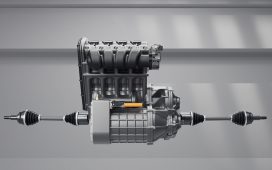The spotlight in talks on a free trade agreement (FTA) with the UK has shifted to electric vehicles (EVs), people with direct knowledge of the development said, amid a determined British push for access to India’s EV market in the mid-price segment.
The UK is looking for duty exemption for fully built EVs in the $40,000-60,000 ( ₹33.30-49.9 lakh) price range in a surprising move, given that India had placed EVs on an exclusion list for concessions. The UK’s interest was thought to be in the luxury EV segment.
For the UK, access to the Indian EV market remains a priority, and the $40,000-60,000 segment—the so-called premium segment—is thought to be a sweet spot for potential sales and market expansion.
However, New Delhi says it can only give concessions for luxury electric vehicles priced at $90,000 and above, the people cited above said.
Currently, because of high import duties of 70% on imported fully built premium cars, the domestic market for EVs in the premium range is small, with Hyundai’s Ioniq 5, Kia’s EV6 and the BYD Atto 3 falling into this price bracket.
Globally, models such as the Mini Cooper SE and the Nissan Leaf are also offered within the premium range. However, the upcoming launch of new EV models by Tata Motors and Mahindra & Mahindra from late 2024 onwards could see a drastic expansion in the market for premium EVs.
EVs accounted for 1.6%, or just over 43,500 units. of the Indian passenger vehicle market year-to-date in FY24. However, the segment is likely to become highly competitive as the government weighs a proposal to lower duties for carmakers selling EVs priced at up to $35,000.
EVs priced over $40,000 attract a 100% duty.
Auto industry body Society of Indian Automobile Manufacturers and the ministry of commerce did not respond to Mint’s requests for comment.
The divergence in the positions of the two sides has led to the talks stretching out. The UK says accessing the $40,000-60,000 price range is crucial to its auto industry’s prospects in India, whereas India, citing concerns about potential revenue loss and the need to protect domestic manufacturers, says giving concessions for luxury EVs priced at $90,000 and above will not significantly affect the broader market.
P.B. Balaji, group chief financial officer of Tata Motors, said, “We would welcome a free trade agreement between India and the UK. We would also like to ensure that these agreements are being done in a manner that protects the domestic industry in terms of the right level of pricing support.
“More importantly, the introduction of new competition is always welcome in any market, and therefore, we are quite comfortable with what is currently being discussed. At the same time, none of us know what is going to come out, and we can respond only (after seeing) the final one.”
British luxury carmaker Jaguar Land Rover (JLR) is a fully owned subsidiary of Tata Motors and has manufacturing and design bases in the country.
Balaji added, “The outcome should be positive for both countries as well as ensuring we have a thriving domestic manufacturing setup here because we shouldn’t forget there are huge PLI (production-linked incentive) investments people are making. So, there needs to be consonance with all those, and therefore, the government and the industry are working hand in hand to ensure that this is done in a manner that is beneficial for the country at large.”
Apart from British carmakers such as JLR, Aston Martin, Mini Cooper and Bentley, several non-UK makers have a significant manufacturing presence in the UK and also sell their products in the Indian market. These include Toyota, Nissan, Honda and Volkswagen.
British performance carmaker Lotus is also set to announce its India entry plans and is likely to launch an electric SUV in India, potentially benefitting from the free trade deal.
Milestone Alert!Livemint tops charts as the fastest growing news website in the world 🌏 Click here to know more.









